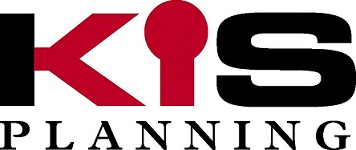Did you know you can claim a tax deduction on certain super contributions when you do your tax return?
Whether you’re employed, self-employed, unemployed or retired, you might be eligible to claim a tax deduction on your after-tax super contributions.
After-tax super contributions are voluntary payments made into your super and don’t include compulsory superannuation guarantee or salary sacrifice contributions.

How do I make a tax-deductible super contribution?
There are various ways to make an after-tax super contribution, including using money from your salary, savings, or the proceeds from an asset sale. When you contribute these funds to your super, you can claim a tax deduction on the amount when you do your annual tax return.
What are some of the benefits?
Putting money into super and claiming it as a tax deduction may be beneficial if you receive extra income that would otherwise attract personal income tax (as this is often higher).
Similarly, if you’ve sold an asset subject to capital gains tax, you may contribute some or all of that money and claim it as a deduction. This could reduce or even eliminate the capital gains tax owed.
What do I need to do to claim a tax deduction on a super contribution?
Make an after-tax contribution to your super
While you can contribute any amount, concessional contributions are capped at $27,500 per financial year. In some cases, you can make catch-up concessional contributions, but it’s important to check because if you exceed the cap, additional tax may apply.
Lodge a form with your super fund
The next step is to lodge a notice of intent form with your super fund, which will acknowledge receipt in writing.
Importantly, you shouldn’t make any withdrawals, rollovers or transfers to pension before your notice of intent form has been lodged, as this may reduce or invalidate the tax deduction.
Have the paperwork ready when you do your tax return
Once the financial year ends, you can prepare and lodge your tax return using the written acknowledgement from your super fund.
Are there other things that I should keep in mind?
Your age
Recent changes to super have removed the need to meet a ‘work test’ before making a personal contribution or under a salary sacrifice arrangement. However, if you are 67-74, you must meet the ‘work test’ to claim a deduction on personal super contributions.
The ‘work test’ requirements state that you must be employed or self-employed for 40 hours over 30 consecutive days in the financial year where contributions are made or meet the work test exemption rules.
For the work test exemption, you must meet three conditions:
-
You met the work test in the financial year before contributing.
-
Your total super balance is less than $300,000 at the end of the previous financial year.
-
You did not use the work test exemption in a previous financial year.
Contribution limits
If you’re claiming a deduction for an after-tax super contribution, the contribution will count towards your concessional contributions cap ($27,500 per year). Note that you may be eligible to contribute more if you have unused concessional contributions from previous financial years.
Importantly, other contributions also count towards the concessional contributions cap, including:
Find out more about super contribution types, limits and benefits.
Other contribution incentives
After-tax super contributions that you claim a tax deduction for won’t be eligible for a super co-contribution from the government.
When you can access super
The Government sets rules around when you can access your super. Generally, you won’t be able to access this money until you’ve reached your preservation age and retired.
Super returns aren’t guaranteed
The value of your investment in super can fluctuate. Before making extra contributions, make sure you understand the risks.
Contact us for more information or if you have any questions.
Source: AMP June 2023
Important:
This information is provided by AMP Life Limited. It is general information only and hasn’t taken your circumstances into account. It’s important to consider your particular circumstances and the relevant Product Disclosure Statement or Terms and Conditions, available by calling Ph 02 9899 9369, before deciding what’s right for you.
All information in this article is subject to change without notice. Although the information is from sources considered reliable, AMP and our company do not guarantee that it is accurate or complete. You should not rely upon it and should seek professional advice before making any financial decision. Except where liability under any statute cannot be excluded, AMP and our company do not accept any liability for any resulting loss or damage of the reader or any other person. Any links have been provided for information purposes only and will take you to external websites. Note: Our company does not endorse and is not responsible for the accuracy of the contents/information contained within the linked site(s) accessible from this page.
